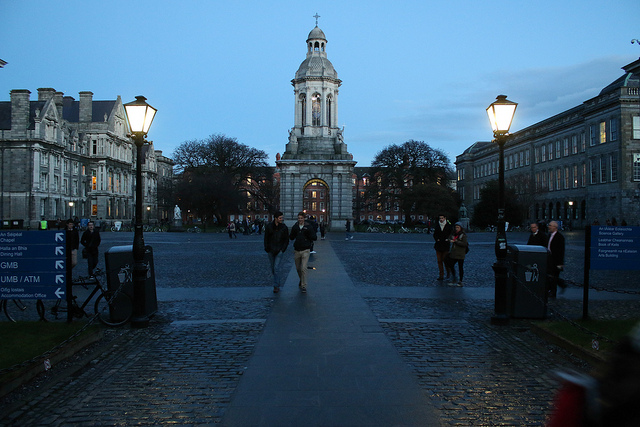Catherine O’Callaghan | Staff Writer
Postgraduate Fees for European students in Trinity College are set to increase following a decision made by the College Board and Finance committee. It was decided to raise EU postgraduate fees by 3% across the board, affecting both future students and those currently enrolled. The proposal was first put forward at a meeting of the Finance Committee in November 2013 and was subsequently approved by the Board. This action follows an earlier decision to increase Non-EU fees for both undergraduate and postgraduate courses with effect from the 2014/2015 academic year.
The college has defended the increase on the basis of comparisons with other universities and the fact that this is the first time these fees have been increased in four years, although Trinity does review fees on an annual basis.
A College spokesperson told The University Times: “College recently conducted a student survey of existing EU fee levels. Comparative analyses were also undertaken which bench-marked our fees with peer institutions. Based on the survey outcomes, the comparative analysis and the fact that there has been no increase of fees in the past four years since 2009/10, College proposed to increase the EU fee levels for postgraduate courses. The Finance Committee has approved a 3% increase in all EU postgraduate fees and this recommendation has been approved by Board.”
President of the Graduate Students’ Union (GSU), Ryan Kenny, has recognised the argument for trying to increase the College’s income, but has also voiced criticism of the impact that this measure will have on current students, stating: “Postgraduate study, particularly at the doctoral level, is a serious, and often challenging, personal and financial commitment – one which no student undertakes without a great deal of thought and careful financial planning.
“A fee increase of this kind, which is imposed not just on new entrants but also on continuing students, gives no regard to the challenges of multi-year postgraduate work – which is tremendously disappointing in an institution with such a strong reputation for its commitment to its postgraduate researchers.”
The Postgraduate students who will be affected make up a significant proportion of Trinity’s student population, with some 5,300 students on the postgraduate register, accounting for approximately 32% of the total student body.
The implications of the increase for EU students undertaking, for example, an MSc in Finance with the School of Business, will be an increase in tuition fees in 2014/2015 to €13,650, from €13,250 at 2013/2014 levels. The same qualification in Civil Engineering will now cost €5,925 annually in tuition fees, up from €5,750, and a Doctoral degree in Clinical psychology will increase from €13,953 to €14,370.
Kenny has assured that “The GSU is actively engaged with College in our efforts to guarantee that postgraduate [students] in Trinity get the best possible educational experience, and will continue to be so. We must acknowledge that, as public funding for higher education continues to fall, achieving the standards to which the college aspires, and which the postgraduate students expect, has become much more challenging. It remains to be seen whether the proposed fee increases can address the challenges that the college faces, and that postgraduates students experience every day, but the GSU will continue to work to address those challenges, and to make sure that postgrads receive the very best an elite university like Trinity can offer.”
Photo by Andrew Murphy







